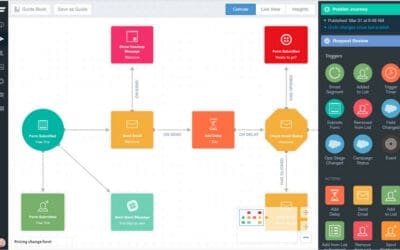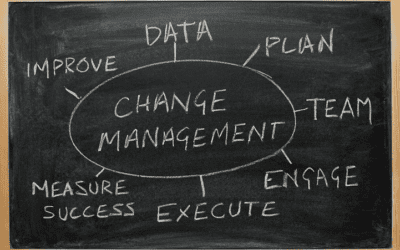The Foundation of Omnichannel Marketing
In the rapidly evolving landscape of digital marketing, the concept of omnichannel marketing has gained immense traction. It refers to the seamless integration of various marketing channels to provide a cohesive customer experience. Among these channels, email, social media, and content marketing play pivotal roles. This post explores the significance of these elements in an omnichannel strategy and how they contribute to a holistic marketing approach.
Omnichannel marketing goes beyond mere multichannel strategies; it focuses on creating a unified customer experience across all touchpoints. According to a report by Investopedia, omnichannel customers tend to spend more than their single-channel counterparts. This statistic underscores the importance of integrating email, social media, and content marketing to enhance customer engagement and drive sales.
The Power of Email Marketing
Email marketing remains one of the most effective channels for reaching customers. With an average ROI of $42 for every dollar spent, it is a powerhouse for businesses looking to maximize their marketing budget. Here are several reasons why email marketing is critical in an omnichannel strategy:
1. Direct Communication
Email allows brands to communicate directly with their customers. Unlike social media, where algorithms can limit visibility, emails land directly in the inbox, ensuring that the message reaches the intended audience. This direct line of communication fosters a sense of intimacy and trust between the brand and the customer.
2. Personalization
With advancements in data analytics, email marketing can be highly personalized. Brands can segment their audience based on behavior, preferences, and demographics, allowing for tailored content that resonates with individual recipients. Personalized emails have been shown to achieve higher open and click-through rates, which are essential for driving conversions.
3. Automation
Email marketing can be automated to send timely messages triggered by specific customer actions. For instance, welcome emails, abandoned cart reminders, and post-purchase follow-ups can all be set to trigger automatically, ensuring that customers receive relevant information at crucial moments in their journey.
The Influence of Social Media
Social media platforms are an integral part of the omnichannel marketing mix. With billions of active users worldwide, these platforms offer businesses an unparalleled opportunity to engage with their audience. Here are some key reasons why social media is essential for omnichannel marketing:
1. Brand Awareness and Reach
Social media channels help brands increase their visibility and reach a broader audience. By sharing valuable content and engaging with followers, companies can build a community around their brand, fostering loyalty and trust. This increased awareness often translates into higher email sign-ups and website traffic.
2. Engagement and Interaction
Unlike traditional marketing channels, social media allows for two-way communication. Brands can interact with customers in real time, responding to inquiries, comments, and concerns. This level of engagement enhances the customer experience, making them feel valued and heard.
3. Content Distribution
Social media serves as an excellent platform for distributing content. By sharing blog posts, videos, infographics, and other valuable resources, brands can drive traffic back to their websites and enhance their content marketing efforts. This synergy between social media and content marketing is crucial for maintaining audience interest and driving conversions.
The Role of Content Marketing
Content marketing is the backbone of an effective omnichannel strategy. It involves creating and distributing valuable, relevant content to attract and engage a clearly defined audience. Here’s why content marketing is vital:
1. Building Authority and Trust
High-quality content establishes a brand as an authority in its industry. By providing insightful and informative content, businesses can build trust with their audience. This trust is crucial for converting leads into customers and retaining existing ones.
2. SEO Benefits
Content marketing plays a significant role in search engine optimization (SEO). By optimizing content for relevant keywords, brands can improve their visibility on search engines, attracting organic traffic. This increase in traffic can lead to more email sign-ups and social media follows, creating a cycle of engagement.
3. Nurturing Leads
Content marketing enables businesses to nurture leads throughout the buyer’s journey. By providing valuable resources at each stage—awareness, consideration, and decision—brands can guide potential customers toward making a purchase. This nurturing process is often enhanced by email marketing, which can deliver personalized content directly to the inbox.
Integrating Email, Social Media, and Content Marketing
To maximize the effectiveness of an omnichannel strategy, businesses must integrate email, social media, and content marketing cohesively. Here are some best practices for achieving this integration:
1. Consistent Messaging
All marketing channels should convey a consistent brand message. This uniformity helps reinforce the brand identity and makes it easier for customers to recognize and connect with the brand across different platforms.
2. Cross-Promotion
Utilize each channel to promote the others. For instance, social media posts can encourage followers to sign up for email newsletters, while email campaigns can promote new social media content or encourage sharing. This cross-promotion enhances visibility and engagement across all platforms.
3. Data Sharing and Analytics
Leverage analytics tools to share data across channels. Understanding customer behavior across email, social media, and content interactions can provide valuable insights that inform marketing strategies. This data-driven approach enables businesses to optimize their omnichannel efforts continually.
Conclusion
The importance of email, social media, and content marketing in an omnichannel strategy cannot be overstated. These channels work to create a seamless customer experience, driving engagement, conversions, and brand loyalty. As digital marketing continues to evolve, businesses that prioritize a cohesive omnichannel approach will undoubtedly stand out in the competitive landscape.







